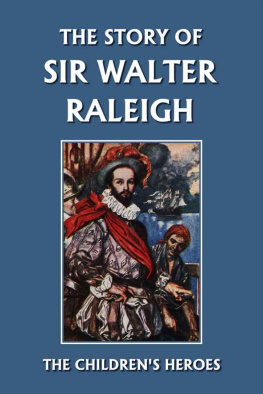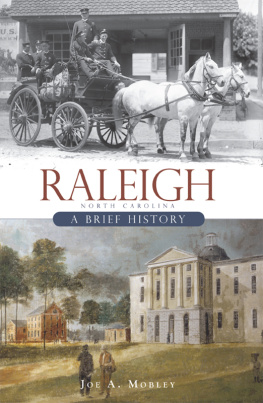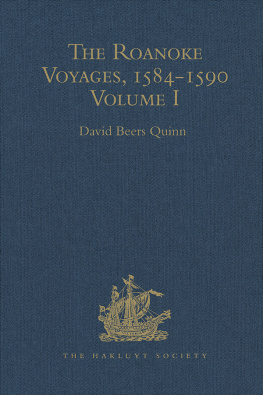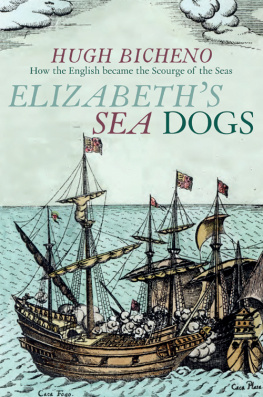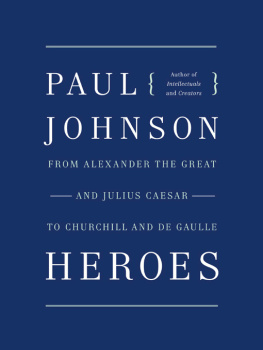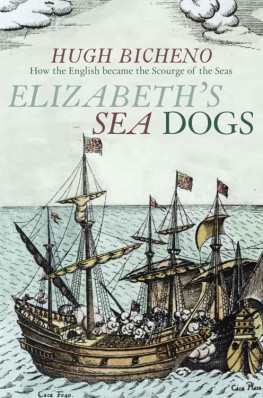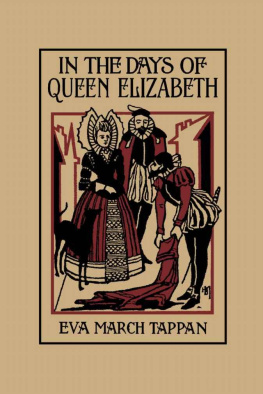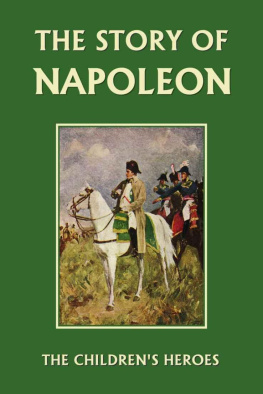The Story of Sir Walter Raleigh
by
Margaret Duncan Kelly
Yesterday's Classics
Chapel Hill, North Carolina
Cover and Arrangement 2010 Yesterday's Classics, LLC
All rights reserved. No part of this book may be reproduced or retransmitted in any form or by any means without the written permission of the publisher.
This edition, first published in 2010 by Yesterday's Classics, an imprint of Yesterday's Classics, LLC, is an unabridged republication of the work originally published by T. C. & E. C. Jack, Ltd. in 1906. This title is available in a print edition (ISBN 978-1-59915-216-5).
Yesterday's Classics, LLC
PO Box 3418
Chapel Hill, NC 27515
Yesterday's Classics
Yesterday's Classics republishes classic books for children from the golden age of children's literature, the era from 1880 to 1920. Many of our titles are offered in high-quality paperback editions, with text cast in modern easy-to-read type for today's readers. The illustrations from the original volumes are included except in those few cases where the quality of the original images is too low to make their reproduction feasible. Unless specified otherwise, color illustrations in the original volumes are rendered in black and white in our print editions.
To Alexander Duncan
Dear Xang,
I know you love fairy tales and stories of strange adventure. The story of Sir Walter Raleigh's life is as wonderful as any fairy tale, and it is also true.
He lived in the days of Good Queen Bess, when the New World had just been discovered, and brave men were sailing forth to seek glory for their country.
Many Englishmen went to the New World. But Sir Walter Raleigh was the first who thought of making another home there for some of his countrymen.
He was one of the heroes who helped to make our little island of Britain a great empire with many lands beyond the sea.
This is why we shall never forget him.
Your loving cousin,
M ADGE.
Contents
CHAPTER I
The Devon Sailors and Their Strange Stories
M ORE than three hundred years ago, a great queen, named Elizabeth, ruled over England, but the people loved her so much that they called her "Good Queen Bess."
At this time England did not own any lands beyond the seas. The Spaniards said that all the land beyond the Atlantic Ocean belonged to Spain, because the Spanish sailors had been the first to discover America. Every year they sent many ships to this New World to bring back to Spain the rich treasures they found there. This made the English sailors very jealous. They, too, wanted to sail across the sea, and to bring back gold and silver.
The bravest English sailors lived on the coast of Devonshire, in the south-west corner of England. These men of Devon hated the Spaniards more than any people in the whole world. If the Spaniards caught any English sailors in what they called the Spanish seas, they flung them, loaded with irons, into dark dungeons, and sometimes they tortured them. But this cruel treatment did not stop the Devonshire seamen from sailing to the New World. It only made them more anxious to go and beat the Spaniards. They knew they were better seamen, and they thought they were better fighters, than the Spaniards. They used to say that one west-countryman could fight five Spaniards any day.
So they set sail for the Spanish seas, and boldly attacked the great treasure-ships. Sometimes they landed on the shores of the New World, and traded with the Indians who lived there. The Spaniards were very cruel to the poor Indians, so the Indians were glad to help an enemy of Spain. Sometimes the English "sea-dogs," as they were called, even attacked the Spanish ports, and seized the treasure as it was lying on the beach, ready to be shipped off to Spain.
The King of Spain was very angry, and asked Queen Elizabeth to punish these English sailors. He called them pirates, as indeed they were. But the English said that they were not pirates, because the treasure did not really belong to the Spaniards, since they had robbed it from the poor Indians by cruelty and torture. They said it was a good deed to punish the Spaniards for their wickedness. As for Good Queen Bess, she was proud of her brave sailors, and wore in her crown some of the jewels they brought back.
At this time, when so many Devon men were risking their lives for glory and for gold, there lived in a beautiful Devonshire manor-house a boy called Walter Raleigh. He was a tall, strong boy, with dark hair and bright brown eyes. He could box, and fence, and ride, and swim, and he knew how to manage a boat. He was clever, too, at school, and very fond of reading. But he loved best of all to listen to the wonderful stories of the sailors who had roamed in all parts of the world. All his spare time was spent on the shore, watching the ships and talking to the sailors.
A SAILOR TALKED OF THE STRANGE COUNTRY WHERE SUCH BIRDS LIVED.
Sometimes a sailor had a ghastly tale to tell. He had been captured by the Spaniards, and had been racked and tortured in Spanish dungeons. He could show his scars, and could tell, too, the wild adventures by which he had at last escaped.
Sometimes another sailor, with his fingers sparkling with jewels, and a Spanish dagger by his side, would tell how a little English ship had captured a great Spanish galleon, laden with gold and silver and jewels. He would show his velvet hat, in which a bird with glittering green and gold feathers was fastened with a golden clasp, and would talk of the strange country where such birds lived.
Often the sailors talked of a wondrous city, where even the roofs of the houses were made of gold. They had not seen this city, but next voyage they hoped they would. As they talked of it, their eyes sparkled, and one of them leaping up, shouted out
"Oh, who will join, jolly mariners all?
And who will join, says he, O!
To fill his pockets with the good red gold,
By sailing on the sea, O!"
Walter listened with beating heart. He longed to say that he would join. He longed to explore that marvellous New World. He longed to see that wondrous city. But most of all he longed to fight the cruel Spaniards, who tortured the brave English sailors and the poor Indian people. He knew that he was still too young to sail away to the Spanish seas. He had still much to learn.
But he resolved that when he was a man he too would fight Spain, and win glory for England.
As he turned from the beach to go home through the beautiful Devonshire lanes, he could hear the sailors singing
"Westward ho! with a rum-below,
And hurra for the Spanish main, O!"
CHAPTER II
Raleigh's First Adventures
W HEN Walter Raleigh was about fourteen, he had to say good-bye to his sailor friends. His father said that it was time for him to go to a great college in Oxford, where he would learn to be a clever man.
In those days there were no railways, so travellers had to ride or drive, which made the journey much longer. It took about three days to ride from Devonshire to Oxford, which is an inland place a great distance from the sea.
At first Walter felt very far away from his Devonshire home. He missed the sea, and he missed the boating and fishing. There is a river at Oxford, but that could not make up for the sea. He even envied the sailor lads who had gone to sea instead of to college. But he worked hard; and as he was very clever, everything he did was well done. He learnt Greek and Latin, which are very difficult. He learnt how to make fine speeches and how to write beautiful poetry. Everybody admired him, he was so handsome and brave, and soon he had many friends.

